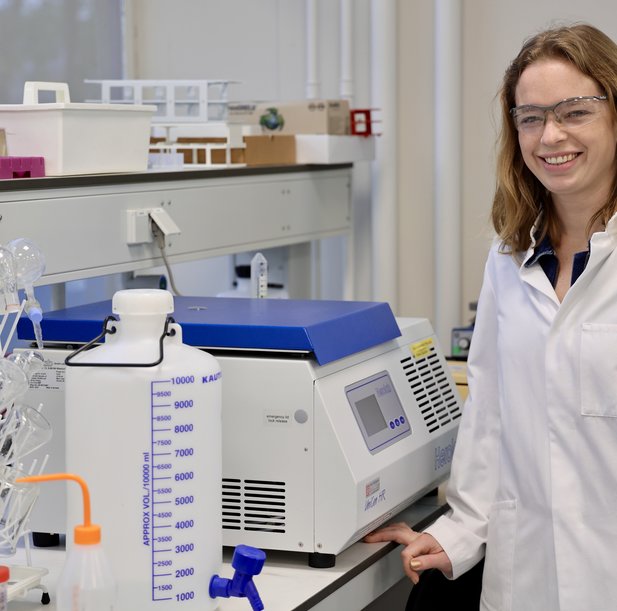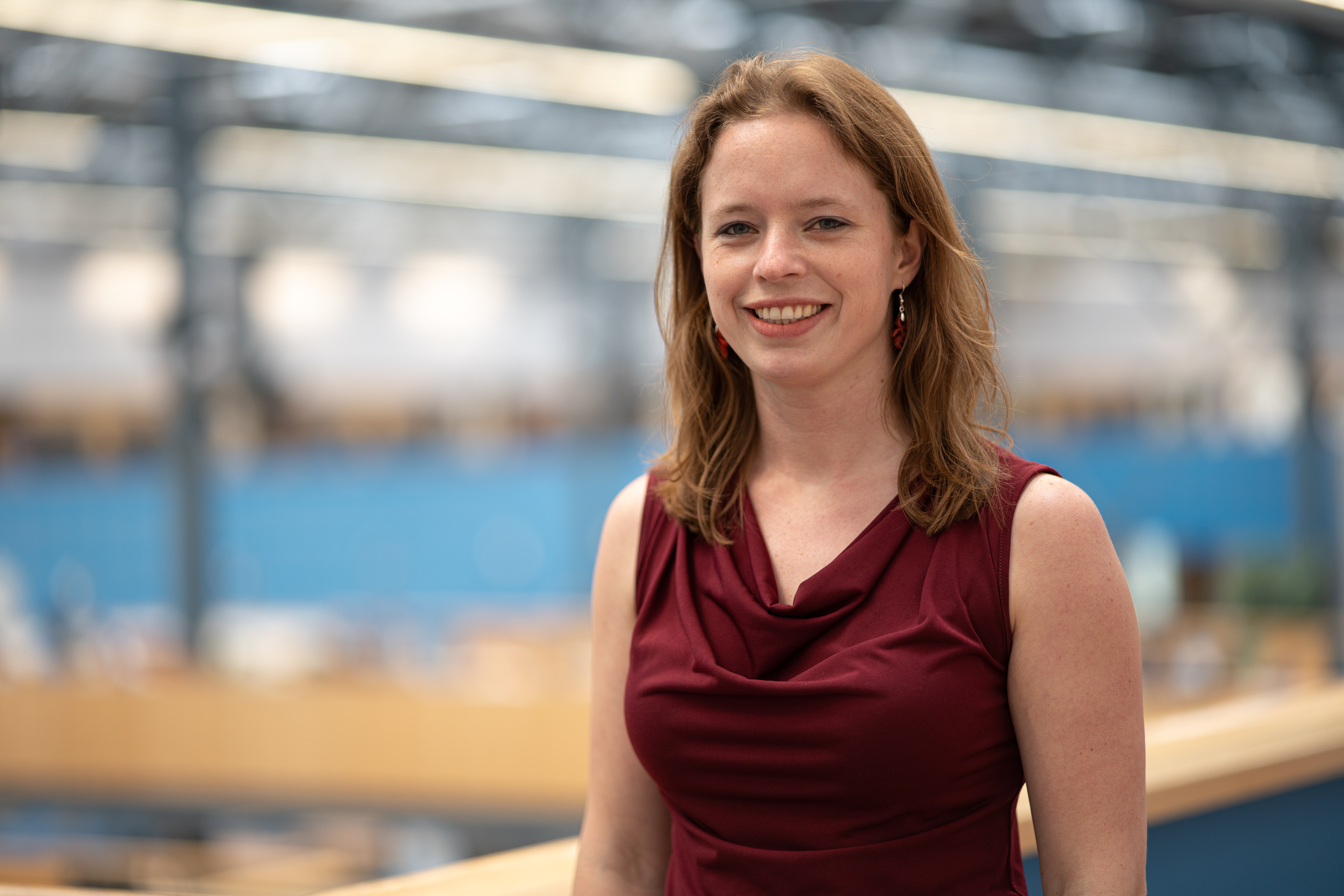Robin de Kruijff
What exactly do you do at the cutting edge of technology and healthcare?
There are loads of cool topics for physicists. Take quantum computers or gravitational waves, for example. But I want to work on something that has a shorter lead time and where you can immediately see what you’re doing it for. This intersection feels immediately relevant to me.
Radionuclides are widely used for the diagnosis and treatment of cancer. They are unstable atomic nuclei that emit radioactive radiation. Depending on the pharmaceutical substance (tracer) to which they are coupled, they will specifically target and adhere to the tumour. Personalised treatment is the holy grail with this, where both the radionuclide and tracer properties are tailored to a patient’s unique tumour properties. I am also working on methods for producing new radionuclides, e.g. in a nuclear reactor, and to efficiently separate them from the bulk of non-radioactive atoms using chemical separation methods or microfluids. To increase the security of the supply, I would prefer that these new methods could also be used in smaller reactors and not just in the handful of large reactors that now supply the world with radionuclides.
My health ambassador Kristina Djanashvili works in a completely different department but sits next to me. She’s developing nanoparticles loaded with radioactivity to treat breast cancer. We complement each other nicely because she’s more into nanomaterials and I’m more into radioactivity. Together we can exchange ideas to successfully develop these kinds of solutions.

How do you experience the medical world?
Producing and separating a radionuclide are just the first steps. The radionuclide must then be linked to the correct tracer, preclinically tested on mice and then clinically tested in real patients. It is a long-term process that requires continuous coordination to end up with a product that will actually be used. It’s really nice to work so closely with doctors and to understand what is needed. I’ve also noticed that even after 10 years of interaction, it can take a while before you realise that you are not always talking about the same thing.
Do you have a top tip for engineers who already work or want to work in the medical domain?
You don’t necessarily have to do all the development yourself. It is more important to work with the people who have greater expertise in certain aspects. I’m developing the radionuclides, others the tracers, and still others are conducting the clinical trials. It’s how we are working together to build a Lego box to treat cancer.
I also recommend that everyone goes to a hospital to see how things are done. The theoretical background and reading scientific articles are completely different from seeing it in practice. It generates enthusiasm and ensures that your research can have a real impact.
